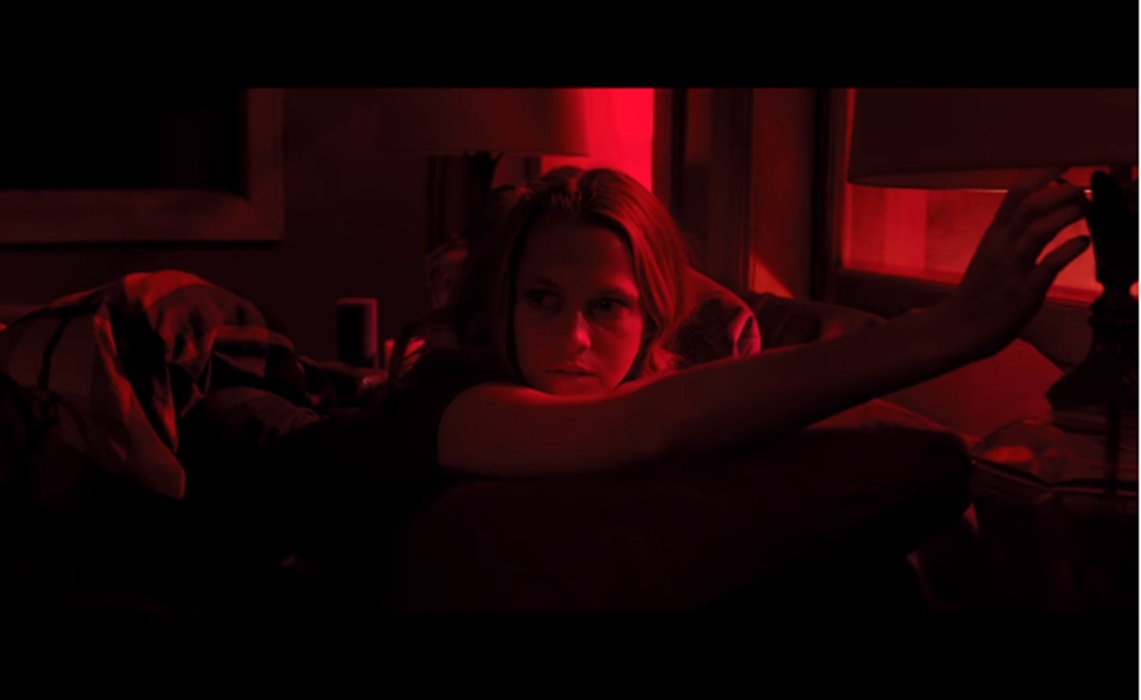About halfway through Lights Out, I realized I was watching something special. Great horror films obviously deliver the fear in droves, which this movie had done by then. But Lights Out boasts several simple real world allegories that give the characters and situations power. I left the theater floored as how squirmed I got and how moved I was.
Rebecca’s (Theresa Palmer) life is at a crossroads. She’s extremely wary of commitment to her boyfriend Bret (Alexander DiPersia) because of the messy past she has with her mother Sophie (Maria Bello). Rebecca is thrust back into her old life because of her younger brother Martin (Gabriel Bateman), who has begun to see mom’s “friend” Diana; Rebecca can relate, since she witnessed Diana when she was much younger.
If you’re just at Lights Out for the scares, this movie will make you contort in my set a LOT. Director David Sandberg is very effective staging the tried and true shadows and dark places which every horror film loves. Sandberg starts with unaware people and Diana standing in a dark corridor while people don’t see her, making the audience agonizingly wait for the eventual attack to happen. Sandberg is quite great at using different versions of lights: tattoo signs, UV Light, candles, etc to give us different perspectives and twists into each scare: a horrified face under a lit up sign is really terrifying. He builds the tension very well, culminating in the house that loses its electricity one night. The sheer intensity of some of the staged darkness and slow walking among the leads had me covering my face multiple times. A horror movie is effective when after the tension breaks because a lead gets away, a sense of euphoria encases you. In Lights Out, that happens at least a couple times.
(SPOILERS AHEAD) What puts the movie ahead of others like it is the various allegories it creates. The most obvious one, like The Babadook, is about how depression and other mental disorders is all encompassing. We learn that Sophie spent some time in a mental institution early on, and every person around her is affected by it. Her first husband left home; her 2nd (Billy Burke) had something happen to him; and Rebecca took off and now struggles with commitment herself, blaming Sophie for things she cannot control. And even when Sophie tries to make herself better, that destructive force is always there, waiting to reappear at the slightest hint of frailty. But that’s not all. Lights Out also imagines the cycle of abusive relationships. Sophie and Diana were friends growing up, but Diana is that type of friend that is wonderful at manipulating someone to push away all of the people who care about her. Any perceived threat Diana sees to their relationship, including Martin or Rebecca, must be eliminated. So poor Sophie is in this terrible position justifying why Diana is still around to her kids who don’t understand and tell their mom how scary Diana is, further exacerbating the situation. In addition, Rebecca is feeling the effects, as she is terrified to commit to Bret, even though for all intensive purposes he seems like a great guy.
Much of Lights Out’s success comes from the 4 leads. Theresa Palmer is playing usually the guy’s role here: a non-committal damaged person who reinvests in their family. Palmer is great with the scares, but equally good with the quiet stuff, eliciting an internal power and calmness when needed. Alexander DiPersia gets to play the ideal boyfriend, but because he’s so affable, cheers would erupt when DiPersia would escape an assault (normally he’d die immediately for being so good). Little Gabriel Bateman is the gamble, as kids in horror movies are usually creepy and here he’s all good. Bateman isn’t too moppy and has enough agency to get away and ask for help. Maria Bello isn’t given much to do, but it’s nice watching her play against type as a helpless trapped woman. I’ve seen Bello play so many strong women that watching her struggle so mightily was heartbreaking.
Yes, Lights Out relies on Boo Moments too often. Yes, there are flimsy plot-driven choices by characters. But the effectiveness of the story and the scares washes away these minor complaints. Lights Out is a testament again to horror directors out there: if you build your movie around a strong story/characters and put shadows everywhere, you’ll get butts in those seats, begging for more.

